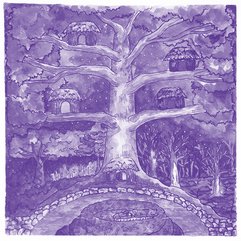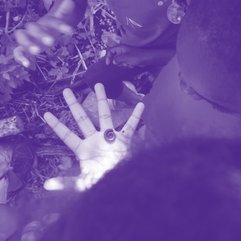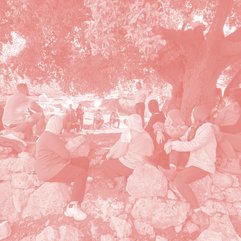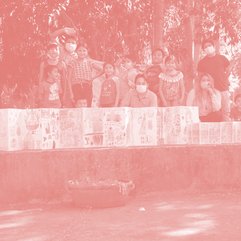Roots of Resistance
Opening of the Film Series with an introduction by Nafis Fathollahzadeh & Sílvia das Fadas, and a Q&A with Khadija Habashneh and Deepa Dhanraj.
18.30-22.00
Save the Date
all ages welcome
multilingual

The program brings together films from the 1980s that center on the collective power of women organizing in the shadows of occupation, in the fields of labor, and in the forests of resistance. From the refugee camps of Palestine to the labor movement of Karnataka and the forests of the Himalayas, their voices intertwine, weaving stories of struggle bound by a shared fight for land, dignity, and freedom.
From 18:30
Opening of the Film Series
Introduction by Nafis Fathollahzadeh & Sílvia das Fadas
Film Screenings
Q&A with Khadija Habashneh from the Palestine Cinema Institute and Deepa Dhanraj from the Yugantar Collective.
Children Nevertheless
(Khadija Habashneh, Palestine, 1980, 21 min, Original version with English subtitles)
Directed by Khadija Habashneh—clinical psychologist and central figure of the Palestinian Cinema Institute—this film offers a powerful look at the self-organization of Palestinian women in exile as they create collective systems of care for children orphaned during the Tel al-Zaatar massacre in northeastern Beirut in 1976. Deeply rooted in the Palestinian liberation struggle, the film depicts life of children in Bait El-Somoud ("House of Steadfastness"), a home established by the General Union of Palestinian Women (GUPW), and highlights the roles of educators, caregivers, and protectors as essential parts of the resistance.
Tobacco Embers
(Yugantar, India, 1982, 26 min, Original version with English subtitles)
Created by the Indian feminist film collective Yugantar, it documents and re-enacts a strike led by tobacco factory workers in the town of Nipani—one of the most significant unorganized labor movements of its time, which sparked unionizing efforts across India throughout the 1980s. Developed in close collaboration with the workers, the film reflects Yugantar’s commitment to the politics of friendship and collective struggle. Known as a “strike manual,” the film functions as both a document and a tool for mobilization, capturing the power of collective organizing, the phases of union formation, and the solidarity cultivated in the fight against exploitation.
Sudesha
(Yugantar, India, 1983, 34 min, Original version with English subtitles)
Also by Yugantar, this movie follows the life of Sudesha Devi, a fierce activist in the Chipko movement—a landmark environmental struggle in India where women played a central role in protecting their forests from corporate deforestation. Through Sudesha’s story, the film highlights the interconnectedness of ecological justice and women’s autonomy, portraying a movement where resistance to environmental destruction is inseparable from the fight against patriarchy.
This event is the opening evening of the film series The Land is Whispering: Imagine Otherwise!. You can find the whole program here: The Land is Whispering.









